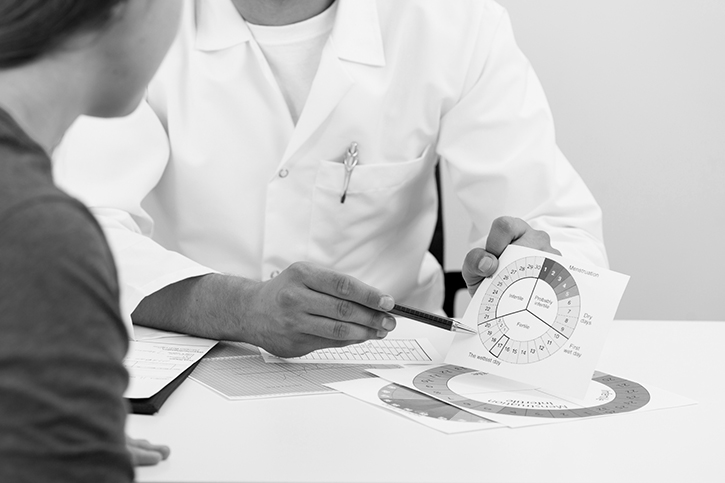Pregnancy is an exciting time, marked by different phases of growth and development for you and your baby. The 40-odd weeks of your pregnancy are grouped into three trimesters, and during these ‘stages’ your obstetrician will guide you the entire way.
When it comes to antenatal care, we believe in a personalised approach and maintaining a close relationship with our patients throughout the entire pregnancy in order to ensure of all your physical and emotional needs are met.

You will need to go through a range of tests during your pregnancy that monitor your health and the health of your baby. Here’s a look at what these tests are.
During your three trimesters, you will need to go through a range of tests that monitor your health and the health of your baby. These will vary, depending on your personal circumstances. But let’s take a look at some of the more common tests performed during pregnancy:
Tests To Monitor Your Health and The Growth and Development of Your Baby
Antenatal care involves regular checkups. During these you will go through a series of blood tests and ultrasounds that will identify any problems with the pregnancy.
Bloods tests – Initial blood tests during your first appointment will test for your blood type, anaemia, diabetes, and infections or diseases such as rubella, HIV, hepatitis B, syphilis and any other infections that may affect your baby’s health.
Ultrasounds – During your pregnancy, you should expect several ultrasound examinations.
The first is performed within the first three months of pregnancy, and is used to check on the number of babies and their due date, as well as factors like nuchal translucency (fluid or thickening at the back of the neck). You will be able to see your baby’s heart rate, umbilical cord, placenta, and size. This is a painless diagnostic test.
The second is performed around the 18-20 week mark (in the second trimester). This is to check on your baby’s development, and you will be able to see the head, face, spine, heart, abdomen, and limbs. The baby’s sex can also usually be determined during this time, if you wish to find out.
A final ultrasound may be performed in the third trimester (usually in the last three weeks of pregnancy) to check further growth and development, position of the placenta, and other factors.
Tests For Specific Conditions
Aside from these routine checkups, there are optional tests for specific medical conditions that you may choose to have. Your baby can be tested for Down syndrome and other chromosomal abnormalities, spina bifida, and genetic conditions. These are either screening tests or diagnostic tests.
Screening Tests
This kind of testing is what is known as screening – examining several ‘markers’ that can tell you how likely it is that your baby is affected by a range of conditions, such as the above. If there is any indication of risk, further testing will be required to confirm the condition.
Screening tests include:
• Combined first trimester screening – This assesses information gathered from the first trimester ultrasound, such as nuchal translucency, and blood tests to determine the risk of chromosomal abnormalities.
• Non-invasive prenatal testing (NIPT) – This is a blood test that looks for specific chromosomes from the baby circulating in the maternal blood. It can tell you the sex of your baby, from 10 weeks into your pregnancy.
Diagnostic Tests
If any risks present themselves from screening tests, or if the pregnancy is inherently high risk (such as with an older mother, or if there is a family history of conditions), diagnostic testing can provide more detailed information.
Diagnostic tests include:
• Ultrasound – An ultrasound is an example of a diagnostic test, and in the case of high risk pregnancies, may be used to check for any abnormalities with the pregnancy, and the wellbeing of your baby.
• Amniocentesis – This is an invasive test that is most commonly performed between 15 and 17 weeks. It involves your gynaecologist inserting a needle through the abdomen to take a small sample of amniotic fluid (the fluid that surrounds the fetus). This fluid is sent off for examination as it contains skin cells of your baby, which are examined for their chromosome number and structure.
• Chorionic villus sampling (CVS) – This is a test that involves taking a sample of some of the placental tissue to check for chromosomal abnormalities and some other genetic problems. It can be performed between 10 -12 weeks. Women who undergo CVS will also require a follow up between 16 to 18 to test for neural tube defects (such as spina bifida), as this cannot be determined during the initial test. CVS is an option for those pregnancies that are high risk due to factors such as age and family history of genetic conditions.
Amniocentesis and CVS are not routine tests in any pregnancy. You should not expect to undergo these tests unless a problem has been found on other tests.
We understand that no two pregnancies are the same, so we’re there for you every step of the way: before, during and after. Personalised care and strong relationships with our patients is of utmost importance for us.
Dr Bevan Brown is one of the most trusted obstetricians in Sydney. If you have any questions about tests during pregnancy, or would like to book an appointment please don’t hesitate to get in touch.